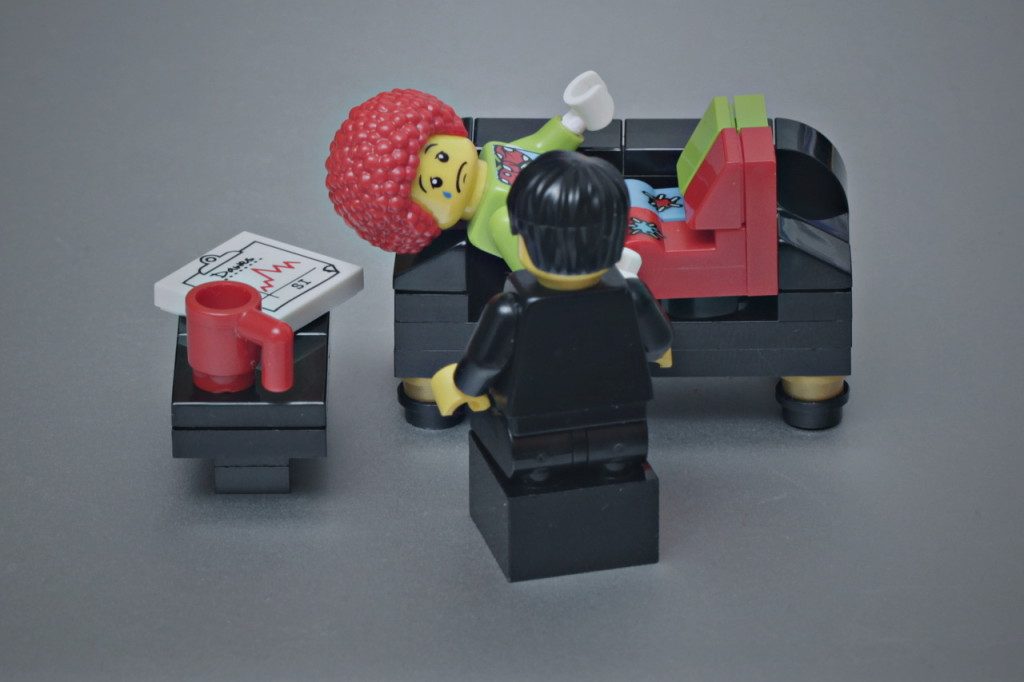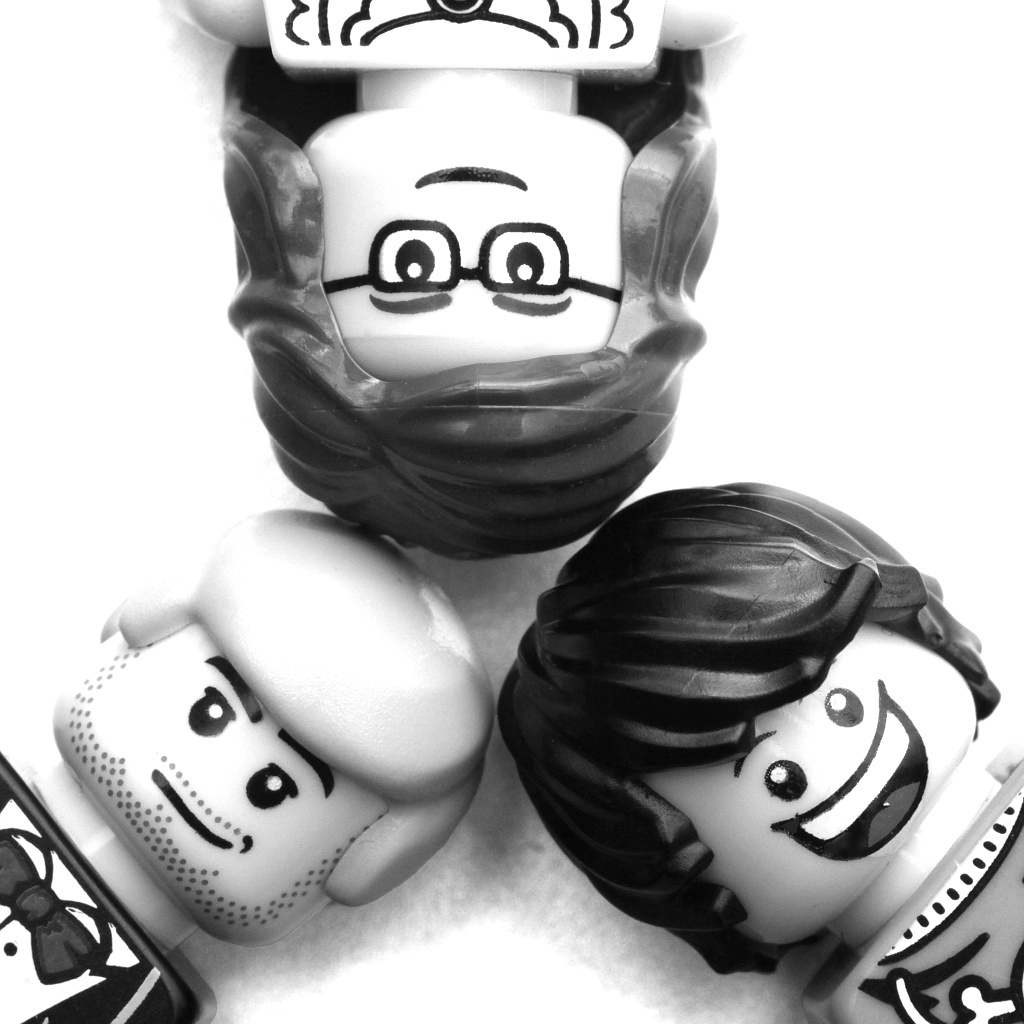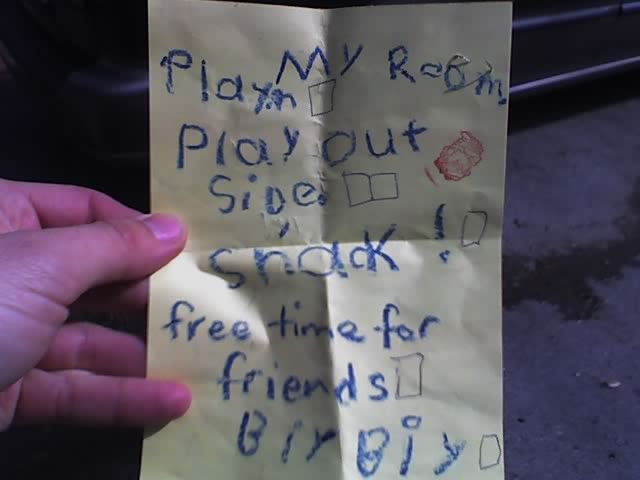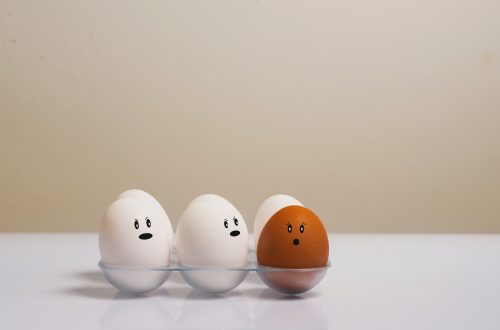
The Best Way to Discover if You Have Adult ADHD? Just Be Yourself!
Getting assessed for Adult ADHD can be nerve-wracking. Those of us who grew up in the 90’s, 80’s, 70’s (or even earlier) absorbed a lot of lies about ADHD:
- ADHD is when spoiled kids can’t behave.
- ADD means you’re a space cadet.
- ADHD means you’re stupid and lazy.
- ADHD means you can’t learn.
- ADHD is just a shorthand for bad parenting.
- The cure for ADHD is growing up.
With all that bad PR, it’s no wonder there’s a stigma around ADHD. We know all those bad things aren’t true about us!
So if you struggle with chronic disorganization, chaos, time management, sticking to a diet or fitness plan, managing your money, keeping up at work, staying in touch with people you love, or keeping your family on a routine, it’s hard to admit — even to yourself — that you might have Adult ADHD symptoms.
[ads]
Asking for help can be scary.
You want to know if there’s help out there, but the process of getting diagnosed seems so complicated, and kind of scary.
Will I have to take a bunch of IQ tests? Do I have to go to a therapist and bare all my deep personal secrets? Will they hook me up to a machine? Will they ask my parents to talk about me? Do I need my old report cards from school? Will the doctor think I’m just crazy or stupid?
WILL THIS GO ON MY PERMANENT RECORD?
I understand exactly how you feel! I’m going to de-mystify the process for you and take you “behind the scenes” on my own journey of getting an ADHD diagnosis as an adult.
But first, I have to tell you a big, uncomfortable secret about ADHD:
If you have Adult ADHD, you’re probably the last to know.
ADHD symptoms show. They don’t just cause problems for you, they affect the people around you, too:
- Those friends (or bosses, or clients) who get irritated because you’re always running late or dropping the ball on projects.
- The people you interrupt and talk over at meetings or parties.
- Those family members who never hear from you on their birthday.
- Your kids’ teachers (or the PTO) who need forms, signatures, meetings or volunteer hours that never seem to materialize.
- The library and the credit card company who make a fortune off your late fees (okay, so they’re probably happy about it, but they do notice!)
- The friends, neighbors, or repair people who’ve seen the mess in your car or your living room.
I’m not trying to make you feel guilty, here. My house is glass and I throw no stones, you know? But most of us reach adulthood thinking we need to try harder and do better, because if we mess up and let people down, we are failing. And we don’t want to fail!
So we try really hard to hide, or minimize, or compensate for our weaknesses. But mostly we just succeed at hiding them from ourselves. I’m here to tell you it’s okay to stop hiding! It wasn’t working anyway.
It’s like the day I discovered I was fat. I mean, I knew I was fat. I’ve struggled with weight my whole life. But I used to try to wear “slenderizing” colors and “tummy tamer” underwear. I’d try to stand a certain way in pictures or put contour makeup under my chin.
Then one day I realized: Everybody else can see it already. The only person I’m fooling is myself. And how does fooling myself help me get healthy? Not at all, that’s how.
So I’m going to tell you a story.

SCENE: PSYCHIATRIST’S OFFICE, INTERIOR, DAY.
The doctor’s cozy office is carpeted and has a couple of overstuffed leather sofas facing each other, a couple of matching upholstered office chairs, and a large, incredibly messy desk in the corner.
“So, what brings you here today?” asks the doctor.
“Well, I asked my G.P. about getting assessed for Adult ADHD, and she referred me to you.”
“And what makes you think you might have ADHD?”
“Well, I was reading an article — wait, that’s not the right place to start. My mom died about six years ago, after a stint in Hospice, and that was horrible, and I was working with Dr. So-and-So on grief counseling, and one of the problems I was having – like I wasn’t having enough problems, but the one I was focusing on was compulsive overeating. I had a toddler and a baby, and I’d come home from the hospital, and put the kids to bed, and just inhale everything I could get my hands on, and I knew it was out of control.”
He nods.
That was probably enough, right there.
I imagine he’d already made his diagnosis by the time I ran out of breath, but he’s a kind man, and I paid for 50 minutes already.
“So she had me reading some material about magical thinking and weight problems, and lately I was thinking I should revisit that, and an internet search led me to some articles on the relationship between magical thinking, weight problems, and ADHD, especially in women. And when I read the description of how ADHD manifests in girls and women, and so often gets missed, it was my life. It was my whole life.”
“So I got a whole bunch of library books — I got the Daniel Amen one, and Driven to — no, not that one, the updated one — Delivered from Distraction, and one called Queens of Distraction, and there’s one I’m reading right now called FAST Minds –“
“What was that?”
“FAST Minds — it’s about ADHD being a collection of traits that everyone has, but it depends on the frequency and the intensity –“
He nods some more.
“And so I asked my G.P., and she sent me to you.”
He started asking questions.
Easy ones. Ones to which the answers were very obvious and did not need a whole lot of introspection or second-guessing.
Questions that started, “Do you find that…” and “Would you say you often…” and “Have you noticed…” Questions about restlessness, and fidgeting, and blurting, and forgetfulness, and disorganization, and Brain Fail moments that just make no sense at all. (Like, how could I have missed an entire page of notes? I checked that document three times. Three times!)
He asked about my mind wandering in lectures, or even in conversations, and I confessed:
I thought everybody did that.
Really. I thought everybody had this other Walter Mitty life going on inside their heads all the time, and they were just better at hiding it than me, or else they were so much more caring and empathic, or spiritually superior, that they could ignore it and devote their minds to God and their fellow humans in a way that I am not capable of.
Because I am bad, and shallow, and self-involved, and really rather dumb.
It’s always been this way.
I told him how, in grade school, my teachers let me get away with reading paperbacks under my desk and writing stories and drawing pictures in my notebook, because my mental police scanner always clued me in with the right answer when it counted, and my grades were fine.
That I’d operated on two channels my whole life, but that I used to be better at monitoring the external channel. Now, with kids and trying to build a writing career, and the Internet, I get lost on the wrong frequency much too often and I’m not doing the things I want to with my days — the things I know I could be doing, and should be doing, because they are important to me.
Then his questions changed.
Less than halfway into the session his wording changed to, “People like us often …” and “We sometimes have difficulty with…”
You see, the doctor has ADHD too. He’s very up front about that. I had suspected as much from the extremely detailed and repetitive instructions his office manager had given me on the phone. And the fact that I didn’t get the email with the new patient forms until I called to follow up on it. And the way they had me swipe his phone for the co-pay, so he’d have a paperless record.

When we met, we had that instant rapport that People Like Us often do have. It’s not a secret handshake, it’s a look in the eye — like semaphore. Like we can see the electrical activity dancing behind the eyes. “Are you one of them? Nope, you’re one of us. Welcome.”
The diagnosis:
The psychiatrist sent an official report back to my GP (well, after I called and emailed a couple of times to remind him.) I have ADHD, combined subtype. That means I have the symptoms of both hyperactivity and inattentiveness. This was a surprise, as I am rather blobby and love my couch.
But hyperactivity doesn’t always manifest in stereotypical “hyper kid” behavior. It shows up as spurts of talkativeness, interrupting, non sequitur, lack of volume control; unpredictable “jags” of preoccupation on a project or topic, that leave as suddenly as they arrive; constantly needing something to do while waiting in line or attending a lecture; an urge to move around that can make parties or talking on the phone uncomfortable; the inability to Let Things Drop, long past the point that it’s not productive or helpful or even fun anymore.
We learn to cope – and hide it.
Being the smart people we are, we can often learn to redirect these impulses, so we appear (slightly) less rude. Socially-acceptable hyper behaviors include making people laugh, hunting in your purse for lotion or ChapStick, doodling, note-taking, playing with hair, jewelry or phones, or knitting.
(I wonder how much of the impact hyperactivity has on men is related to the social barrier to them carrying a purse? Geez, if I didn’t have something in my purse to mess around with, things could get ugly. What have guys got? Their pockets. And NOBODY wants to be the guy in line at the post office messing around in his pocket. Ew.)
My Truth: Our Truth.
I understand that a lot of people don’t like to talk about their ADHD in a public or professional setting, because they are sensitive about being labeled with a disorder, or as less capable, or stupid, or flakey. But they probably think that about me already, so I’m doing it anyway.
So, for everybody who already thinks I’m flakey, or possibly stupid, or less capable (beginning with myself), here goes: Like at least 4% of American adults, I have ADHD. This statistic is actually kind of bullshit, because if you make it to your mid-40’s without being diagnosed (like I did), chances are you’ll continue to struggle, and you may never get diagnosed at all.
Welcome to the club.
When it comes up in conversation that I have ADHD, people’s reactions are based less on how long or how well they’ve known me, and almost entirely on how much they know about ADHD. Lifelong friends and family who still believe the myths are incredulous. “You? But you did so well in school!”
Those who have encountered it in their households, or as teachers, or in themselves — even mere acquaintances just nod. “Of course.”
More than one person I am close to (not naming any names, You) has gotten a faraway look when I describe my experiences and said, “I thought everybody was like that, and they were all just better at hiding it.”
Yeah, no.
Working hard at “nothing.”
Having ADHD doesn’t mean you’re incapable of anything you want to do in life. It does mean that you are working much, much, harder than most people do on the basics.
ADHD is a deficit in the brain’s “executive functions.” These are the tasks that most people don’t even know they’re doing.
When you ignore a distraction, remember what you were doing after being interrupted, visualize a long-term abstract goal, notice small individual details instead of a large connected pattern, plan ahead for needs that aren’t urgent, control your emotional reaction, remember what day it is today (and how that relates to the appointments on your calendar), choose your words carefully before speaking, remember the right order to do things efficiently, stay aware of the passage of time…
These (and a thousand other tiny jobs) are all tasks your brain has to do. People with typical brains do them on autopilot. We can’t rely on that autopilot. We have to make a conscious effort. It’s hard work, but it’s all invisible.
Typical Tips Don’t Help.
You know all those productivity tips about goal-setting and making lists? Oh, we make lists. We make lists of our lists. We can make obsessively beautiful and detailed lists of everything that needs to be done for a Pinterest-looking home and world domination — and then go write a screenplay instead, or build a playhouse for the kids, or come up with a revolutionary new business idea, or scrub the bathtub grout with a toothbrush.
“Oh!” we say, as we lie there exhausted. “I didn’t do anything on my list today. I’m so lazy.”
How to Move Forward.
Go talk to your doctor. Knowing how to take care of yourself properly makes a huge difference. But the biggest difference is all the time you save when “Beating Myself Up” comes off your to-do list, forever.
Now, if you’ll excuse me, I’ve sat here a long time writing this, and I need some ChapStick.

A version of this post originally appeared on my author website, ellenseltz.com.
[ads]

